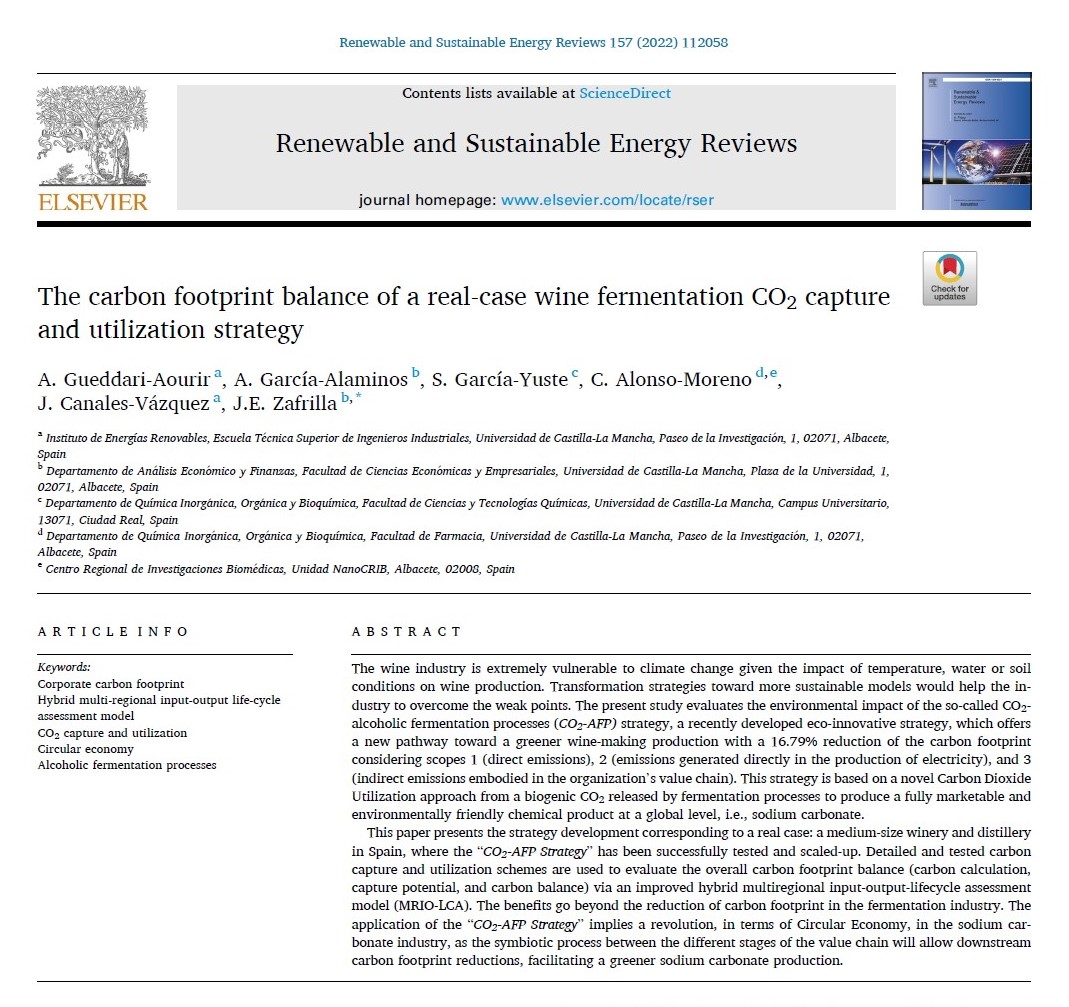UCLM researchers Abdessamad Gueddari-Aourir, Santiago García-Yuste, Carlos Alonso-Moreno, and Jesús Canales-Vázquez together with the GEAR Group members Ángela García-Alaminos and Jorge Zafrilla have recently published a new research article in Renewable and Sustainable Energy Reviews.
The paper, entitled “The carbon footprint balance of a real-case wine fermentation CO2 capture and utilization strategy”, evaluates the environmental impact of the so-called CO2-alcoholic fermentation processes (CO2-AFP) strategy, a recently developed eco-innovative strategy. This proposal offers a new pathway toward a greener wine-making production with a 16.79% reduction of the carbon footprint considering scopes 1 (direct emissions), 2 (emissions generated directly in the production of electricity), and 3 (indirect emissions embodied in the organization’s value chain). The paper presents the strategy development corresponding to a real case: a medium-size winery and distillery in Spain, where the “CO2-AFP Strategy” has been successfully tested and scaled up. Detailed and tested carbon capture and utilization schemes are used to evaluate the overall carbon footprint balance (carbon calculation, capture potential, and carbon balance) via an improved hybrid multiregional input-output-lifecycle assessment model (MRIO-LCA). The benefits go beyond the reduction of carbon footprint in the fermentation industry. The application of the “CO2-AFP Strategy” implies a revolution, in terms of Circular Economy, in the sodium carbonate industry, as the symbiotic process between the different stages of the value chain will allow downstream carbon footprint reductions, facilitating a greener sodium carbonate production.
We hope you enjoy it! LINK

